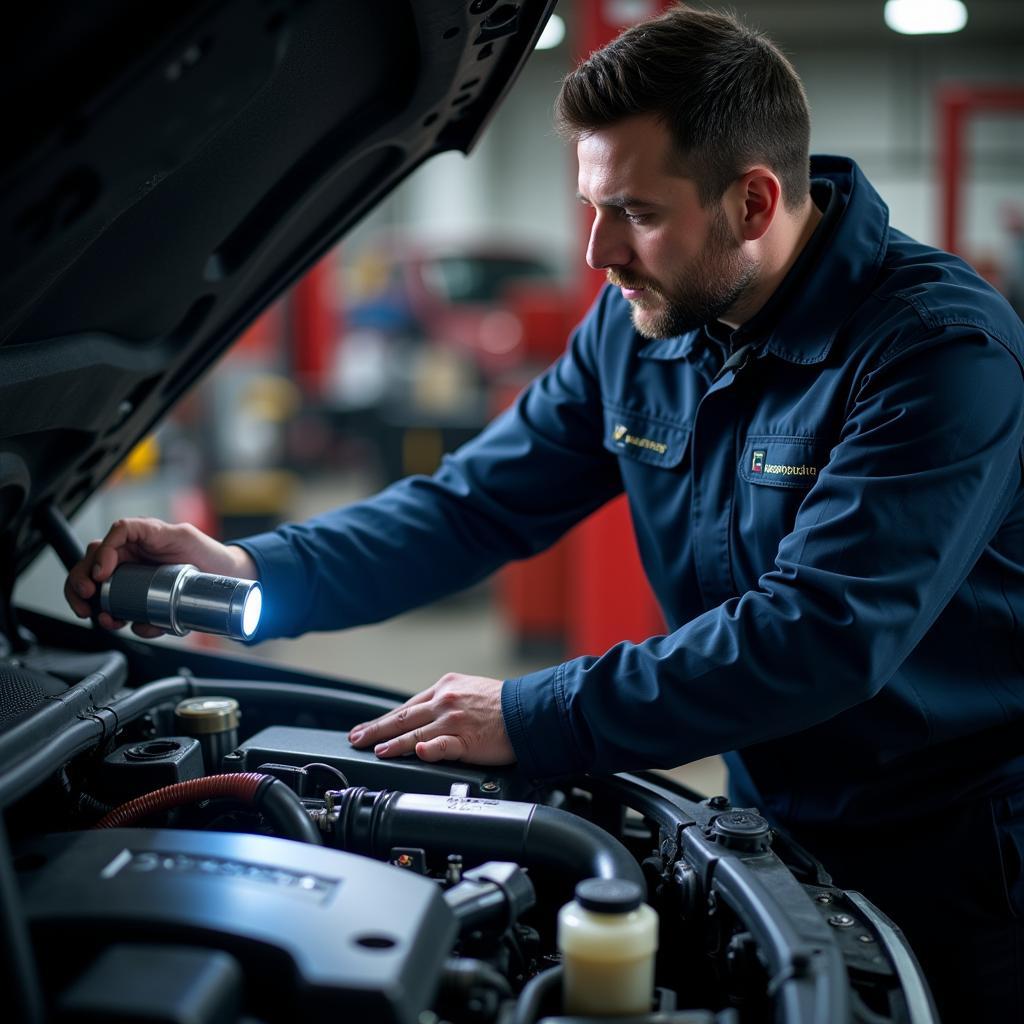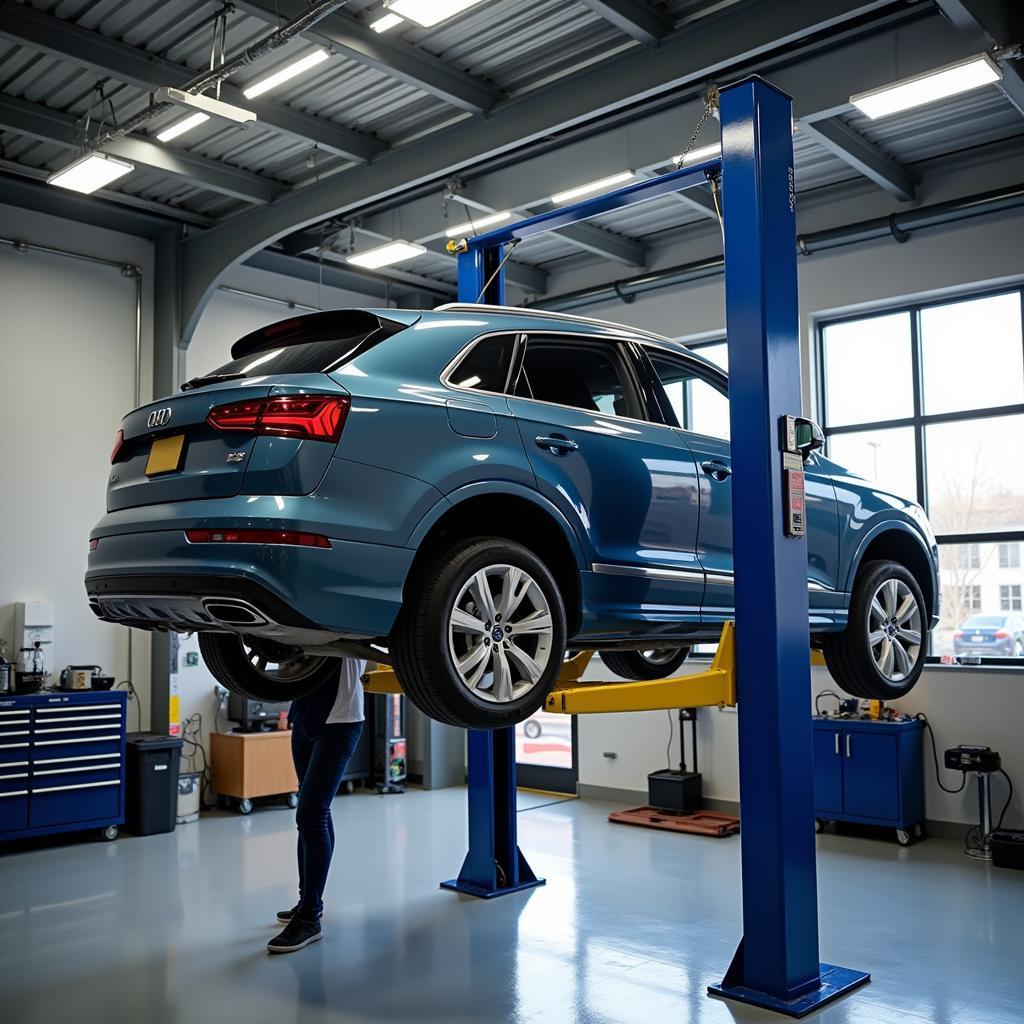How Often Does a Car Need Service? A Comprehensive Guide
Keeping up with your car’s maintenance schedule can feel like a chore, but it’s essential for ensuring its longevity, safety, and performance. But how often does a car need service, really? The answer isn’t always straightforward and depends on a few factors, including your car’s make and model, age, driving conditions, and manufacturer recommendations.
Decoding Your Car’s Maintenance Schedule
The best guide for your car’s service intervals is your owner’s manual. It outlines specific maintenance tasks and their recommended frequencies based on mileage or time intervals, whichever comes first. These schedules are designed to keep your car running smoothly and prevent potential issues down the line.
General Car Service Intervals: A Starting Point
While specific recommendations vary, here’s a general guideline for common car service intervals:
Every 3,000 miles or 3 months:
- Oil and filter change: This is crucial for lubricating engine components, reducing friction, and preventing premature wear and tear.
- Tire pressure check: Maintaining optimal tire pressure ensures even tread wear, fuel efficiency, and safe handling.
Every 6,000 miles or 6 months:
- Tire rotation: This promotes even tire wear by moving the tires to different positions on the vehicle.
- Fluid top-offs: Checking and topping off essential fluids like coolant, brake fluid, power steering fluid, and windshield washer fluid ensures optimal performance and prevents potential damage.
Every 15,000 – 30,000 miles:
- Air filter replacement: A clean air filter ensures optimal airflow to the engine, improving fuel efficiency and performance.
- Spark plug replacement (for gasoline engines): Spark plugs ignite the air-fuel mixture in the engine cylinders. Worn-out spark plugs can lead to misfires, reduced fuel efficiency, and engine damage.
Every 30,000 – 60,000 miles:
- Brake inspection and service: This typically includes inspecting brake pads, rotors, calipers, and brake fluid levels to ensure optimal stopping power.
- Coolant flush: This involves draining and replacing the engine coolant to prevent corrosion and overheating.
 Mechanic inspecting a car engine for maintenance
Mechanic inspecting a car engine for maintenance
Factors Affecting Car Service Frequency
Driving Conditions: Frequent stop-and-go city driving, extreme weather conditions, and hauling heavy loads put more strain on your car, requiring more frequent servicing.
Vehicle Age: Older vehicles might require more frequent maintenance due to wear and tear on components.
Vehicle Type: High-performance vehicles or those used for towing often require more frequent service intervals due to increased stress on their components.
Recognizing Warning Signs: When Your Car Needs a Service
Besides adhering to scheduled maintenance, it’s vital to recognize warning signs that indicate your car might need immediate attention:
- Unusual noises: Screeching, grinding, knocking, or clicking sounds coming from the engine or other components.
- Fluid leaks: Puddles of oil, coolant, or other fluids under your parked car.
- Warning lights on the dashboard: Check engine light, oil pressure light, brake warning light, etc.
- Vibrations or shaking: Noticeable vibrations or shaking while driving, especially at higher speeds.
- Decreased performance: Reduced fuel efficiency, sluggish acceleration, or difficulty starting.
The Importance of Regular Car Service
Regular car servicing is not just about ticking off boxes on a checklist; it’s an investment in:
- Safety: Ensuring your car is safe to drive for you, your passengers, and other road users.
- Reliability: Reducing the risk of unexpected breakdowns and costly repairs.
- Longevity: Prolonging the lifespan of your car by preventing premature wear and tear.
- Resale Value: A well-maintained car with a documented service history commands a higher resale value.
“Regular car maintenance is like preventative healthcare for your vehicle,” says John Smith, Senior Automotive Technician at CarServiceOnline. “It’s always better to address minor issues before they escalate into major problems, saving you time, money, and potential headaches down the road.”
 Car on a lift in a service center for inspection
Car on a lift in a service center for inspection
Conclusion
Understanding how often your car needs service is crucial for its overall health and your peace of mind. While this guide provides general insights, always consult your car’s owner’s manual for specific recommendations and don’t hesitate to seek professional help if you notice any warning signs or are unsure about any aspect of your car’s maintenance.
By staying proactive and prioritizing your car’s service needs, you can enjoy many miles of safe, reliable, and enjoyable driving. Remember, a well-maintained car is a happy car!
For all your car service needs and expert advice, contact CarServiceOnline. We’re here to help you keep your car running smoothly!
Need immediate assistance? Contact our 24/7 customer support via WhatsApp: +1(641)206-8880 or Email: [email protected].

